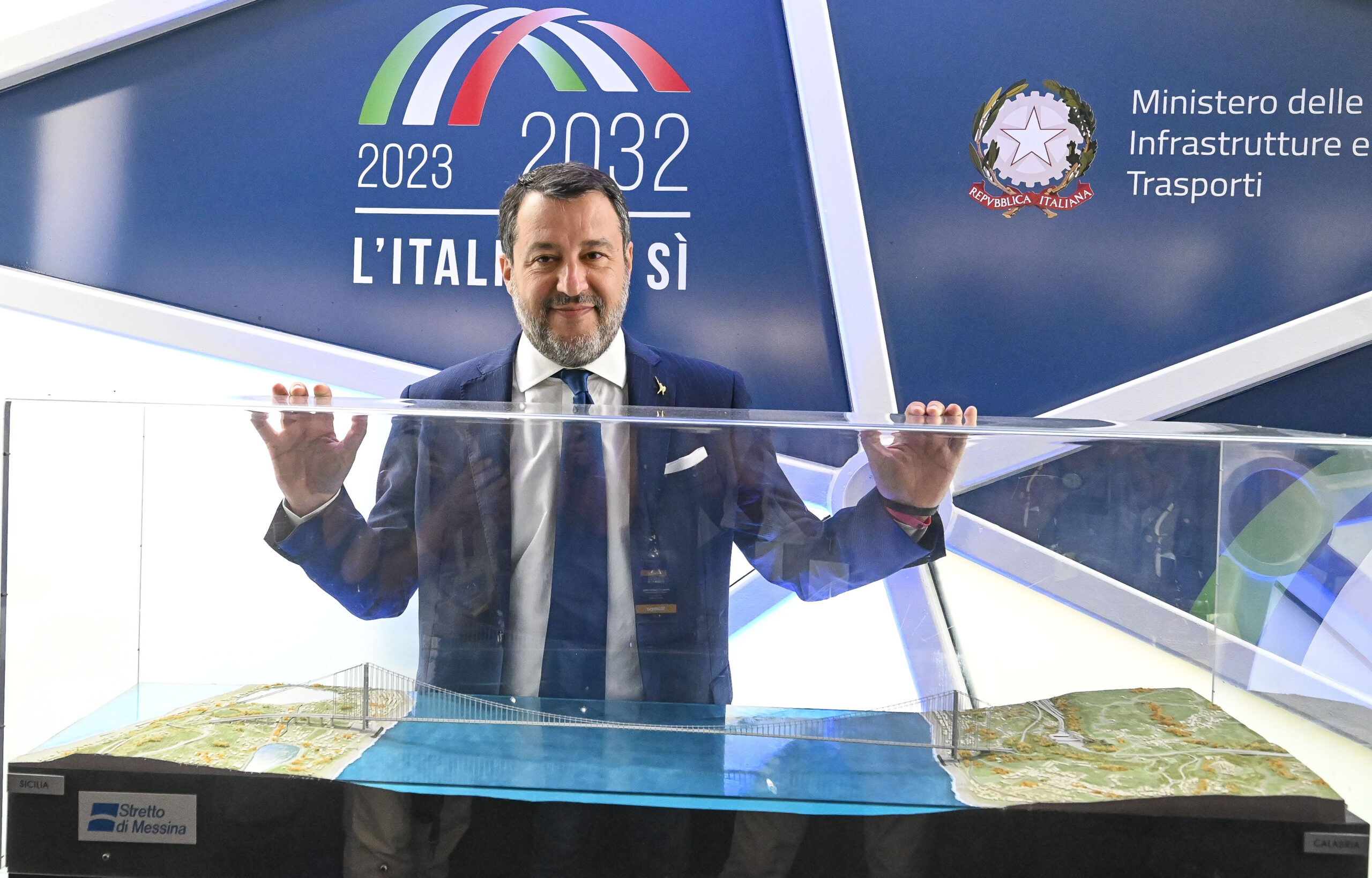Brussels – Opposition to Giorgia Meloni’s government is back on the attack in Brussels over one of the projects Transport Minister Matteo Salvini has focused on: the bridge over the Strait of Messina. “A project that complies with EU regulations?” the broad camp asks. The question, launched during an event at the EU Parliament sponsored by the Democratic Party, Movimento 5 Stelle and the Green Left Alliance, is also addressed to the European Commission, which signed a co-financing of 25 million for the executive design of the bridge, the missing southern link of the major European inter-modal transport networks (Ten-T).
Representatives of local authorities attended the meeting, the Messina Noponte Coordination and the Calabrian Noponte committees, the first to urge incisive action at the European level after the ok to the project by the Via-Vas (Environmental Impact Assessment) Commission of the Ministry of the Environment, tied, however, to a series of observations on the environmental impact of the project in the special protection zones in the strip of sea protected by the European Habitats Directive. According to the Stretto di Messina company in charge of the project, the comments “are not in contradiction with the favourable opinion, but concern aspects to be further investigated in the executive design and do not affect the technical feasibility of the work.”
In a written question to the European Commission submitted on Jan. 27, the three Italian opposition parties argue that “the bridge over the Strait of Messina, included in the Ten-T network, raises critical issues regarding compliance with European regulations,” and in particular point to the “lack of technical studies on seismic risks, coastal erosion, and interference with Natura 2000 areas” and “doubts about the economic viability” of the project.
“We have joined forces,” Dem MEP Annalisa Corrado began today, “to say no to this absolutely incomprehensible work, an eco-monster that has flaws from all points of view. Not only of compliance with European standards but also of those of “design and the permitting process.” The mammoth work, which according to the Document of Economy and Finance (DEF) would cost approximately €14 billion, for Corrado is “just a weapon of mass distraction, a propaganda object not to do what the territory really needs.” Starting with the water crisis affecting Calabria and Sicily and “the total absence of decent infrastructure.”

The head of the 5 Star Movement’s delegation, Pasquale Tridico, lashes out at Salvini and a project “with no future made only to satisfy the ego of a political figure who does not know the needs of our country.” In addition to the incompatibility with European regulations that “will probably already be highlighted by our domestic legal system,” Tridico points out that the work, which has been talked about in Italy for decades, “is no longer needed in terms of freight traffic that it could have had fifty years ago.”
The mayors of Reggio Calabria and Villa San Giovanni, Giuseppe Falcomatà and Giuseppina Caminiti, submitted an appeal to the Lazio Regional Administrative Court last December. In mid-January, the court allowed the appeal of the opinion of the Environment Ministry commission that had given the okay to the project. Tridico is confident that the start of construction can still be stopped because the documentation on environmental impacts will “expose the regulatory contradictions” of the work strongly desired by Salvini.
Rounding out the big-tent alliance was Cristina Guarda, AVS Green MEP, who said the project “is not subservient to the common good, but to the interest of the few.” Guarda attacked the Lega, guilty of wanting to “generate a space and a budget chapter exclusively to release economic resources to the usual suspects.”
English version by the Translation Service of Withub
![Lavori per la linea veloce Torino Lione e irogetto del ponte sullo stretto di Messina [foto: imagoeconomica]](https://www.eunews.it/wp-content/uploads/2024/07/tav-ponte-stretto-350x250.png.webp)






